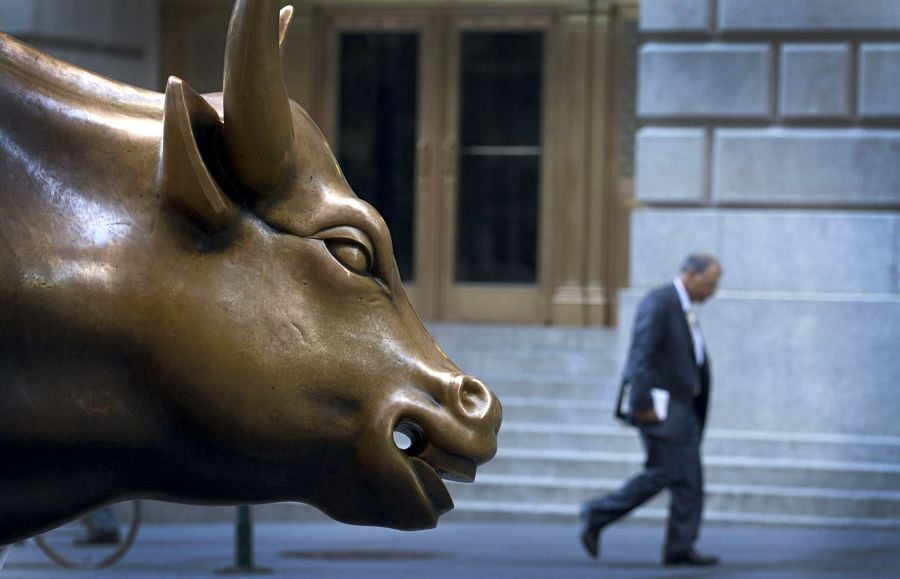

Call it a bullish outlook when only 11% of financial advisors expect the S&P 500 Index to finish the year in negative territory.
A late February survey of 705 advisors sponsored by technology platform InspereX shows 53% of respondents expect the S&P to gain at least 10% in 2023, while 36% expect the market to be flat for the year.
The general outlook includes 51% of advisors saying that 2023 will be the start of a prolonged bull market for equities. That's a strong endorsement considering that 2022 saw both stocks and bonds finish in negative territory for the first time ever.
So far this year, the markets have been in a rallying mood, with the S&P up 7.5% on the heels of an 18% drop last year. Bitcoin has also found some fresh momentum, cresting the $30,000 mark for the first time since June 2022.
According to Morningstar, large-growth led all style boxes in the first quarter with an 11.6% gain. The foreign large-growth category rose 9.6%, and foreign large-value was up 7.4%.
As Morningstar analyst David Carey detailed, some of the strongest performers early this year are rebounding from a rough 2022.
“Managers who held the hardest-hit names in 2022 tended to come out on top in the first quarter,” he said. “After falling more than 31% in 2022, the Morningstar U.S. Tech Index finished the quarter up 22.5%.”
Perhaps not surprisingly, the Morningstar U.S. Banks — Regional Index plummeted 23.5% in the first quarter.
By sector, information technology has led the way this year with a 20.9% gain, followed by consumer services, up 17.9%, and consumer discretionary, up 15.6%.
Financials holds the title of worst-performing sector with a 5.3% decline, followed by energy, down 4.9%, and health care, down 3.5%.
Broken down by asset class, developed international stocks gained 8.9%, gold was up 8% and U.S. large-cap stocks rose 7.4%
The worst-performing asset class over the first three months of the year was commodities, which were down 6.3%, followed by cash with a 1% gain and real estate with an increase of 1.7%.
The InspereX advisor survey shows that 48% of advisors expect equities to be the best-performing asset class this year, while 17% cited bonds, 9% said cash, and 8% said alternative investments.
Only 1% of advisors said they expect cryptocurrencies to be the best-performing asset class this year.
“If 2022 wasn’t challenging enough for stock market investors, this year has been a gotcha market because every time you start to feel confident, volatility reappears,” Chris Mee, head of market-linked products distribution at InspereX, said in a statement.
“It shouldn’t be a surprise given all of the macro factors in play, including inflation, rising rates, and even more recently a black swan event in banking, but many advisors tell us they believe there is potential for reasonable market gains this year,” he said. “Many believe we are heading into a new bull market. The question is, do their clients share their faith in the market after last year left so many clients more worried more than ever about volatility?”

The new regional leader brings nearly 25 years of experience as the firm seeks to tap a complex and evolving market.

The latest updates to its recordkeeping platform, including a solution originally developed for one large 20,000-advisor client, take aim at the small to medium-sized business space.

David Lau, founder and CEO of DPL Financial Partners, explains how the RIA boom and product innovation has fueled a slow-burn growth story in annuities.

Crypto investor argues the federal agency's probe, upheld by a federal appeals court, would "strip millions of Americans of meaningful privacy protections."

Meanwhile in Chicago, the wirehouse also lost another $454 million team as a group of defectors moved to Wells Fargo.
Orion's Tom Wilson on delivering coordinated, high-touch service in a world where returns alone no longer set you apart.
Barely a decade old, registered index-linked annuities have quickly surged in popularity, thanks to their unique blend of protection and growth potential—an appealing option for investors looking to chart a steadier course through today's choppy market waters, says Myles Lambert, Brighthouse Financial.
